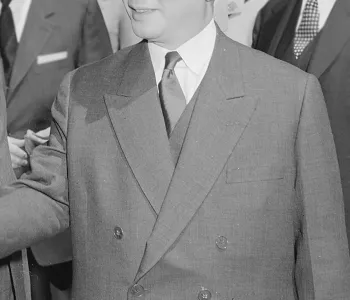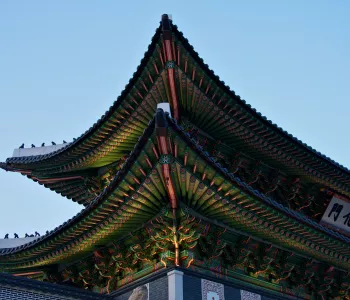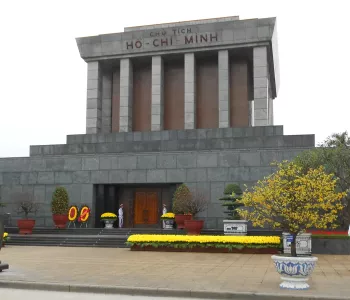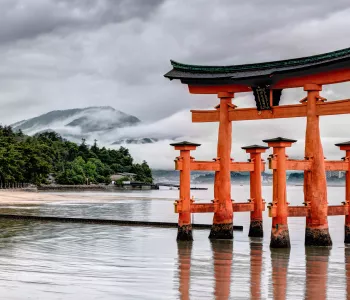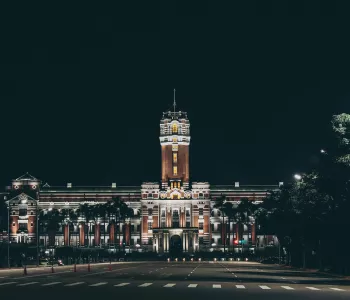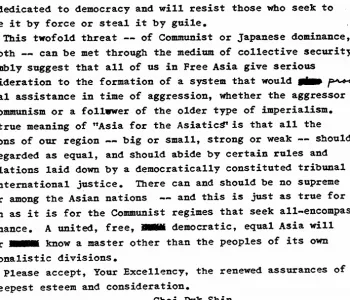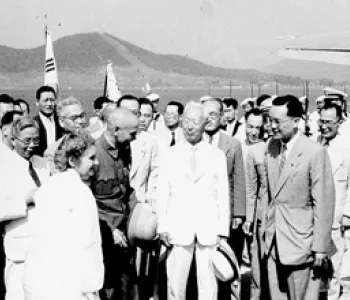d'Vinci

Choi, Duk Shin (Choe Deok-sin) 1914- 1989
Choi Duk Shin (Choe Deok-sin; Ch'oe Tok-sin) was head of Cheondogyo, an indigenous religion, in the DPRK and also the highest ranking defector from the ROK.

Choi Duk Shin (Choe Deok-sin; Ch'oe Tok-sin) was head of Cheondogyo, an indigenous religion, in the Democratic People's Republic of Korea (DPRK) when he died. He was the highest ranking defector from the Republic of Korea (ROK) and the one who achieved the highest rank in the DPRK. Before his defection, he had already had an interesting and varied career. Born in Uiju, on the Yalu River, in 1936 he graduated from the Republic of China's Whampoa Military Academy and became an officer in the Chinese Nationalist Army. In 1945, he returned to Korea with the rank of colonel. He then entered the (South) Korean Military Academy as a second lieutenant. He later attended the United States Military Academy. During the Korean War (1950-53), he commanded the 11th Division, which was blamed for the massacre of civilians in South Gyeongsang Province in February 1951, and took part in the Armistice Agreement negotiations at Panmunjeom. He retired from the ROK army in 1956 as a corps commander. Following Park Chung Hee's coup in 1961, he became foreign minister from 1961 to 1963, and then ROK ambassador to the Federal Republic of Germany from 1963. On leaving the FRG, Choi became the seventh "bishop" of Cheondogyo.
Choi had been a staunch anticommunist and a supporter of Park, but he turned against his former patron in the 1970s over corruption and became critical of the government. The government in turn accused him of corruption involving Cheondogyo funds, and in 1976, he and his wife, Ryu Mi-yeong (1921- ), left for the United States, from where they conducted an anti-ROK campaign. He visited the DPRK for the first time in 1984, and two years later, moved there permanently. Before long, he was a vice chair of the Committee for the Peaceful Reunification of the Fatherland, chair of the Central Committee of the Chondoist Cheongu Party, chair of the Central Ch'ondogyo Guidance Committee, and, from May 1989, chair of the umbrella Association of Korean Religionists. He was also a delegate to the Supreme People's Assembly (SPA). When Choi died in November 1989, his wife took over his role as head of the Ch'ondogyo Guidance Committee. She is also a member of the SPA, and led the delegation for family reunions from the DPRK to the ROK that followed the June 2000 Inter-Korean Summit. Choi is buried in the National Cemetery for Revolutionary Martyrs in Pyongyang.
All rights reserved. No portion of this publication may be reproduced, stored in a retrieval system, or transmitted in any form by any means, electronic, mechanical, photocopying, recording or otherwise without the prior written permission of the publisher. (Historical Dictionary of the Democratic People's Republic of Korea, by James E. Hoare, published by RLPG Books, appears by permission of the author and publisher).
